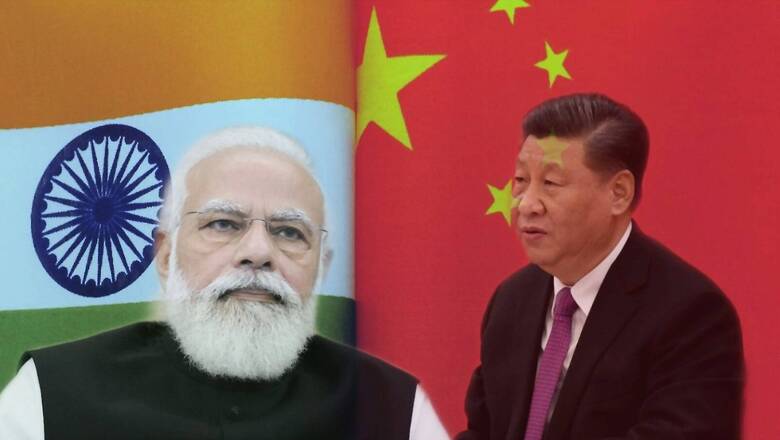
views
‘The enemy’s enemy is a friend,’ is an old adage that suggests that two parties or nations can work together in all domains against a common enemy/opponent. This argument is also found in statecraft related wisdom in Kautilya’s Arthshastra dating back to the fourth century BC.
This approach finds manifestations at the national level in almost all countries and is practised by us as well as our opponents. In the modern context, Gabriel Manigault in his 1884 political creed highlighted this approach. In India’s context, China has not only befriended Pakistan, our conventional adversary on the Western border but has also entrenched itself in Myanmar, Sri Lanka, Bangladesh, Maldives and Afghanistan, to say the least. Pakistan has adopted the same philosophy by maintaining enhanced and unparalleled relations with China, with a view to surround India on both sides and straitjacketing it within the confines of South Asia.
Also Read: China Spreads its Tentacles in Australia’s Backyard as the World Looks Away
To counteract this, India has developed friendly relations with multiple countries having adversarial relations with China such as the Philippines, Vietnam, Japan, Indonesia and Malaysia apart from South Korea, Australia and USA. These relationships, however, are not of the same intensity as China’s due to two reasons: India, unlike China, is not the central actor in these relationships either financially or militarily; and India, unlike China, does not believe in inculcating parasitic relations. A focused approach towards issue-based plurilateralism has led to the operationalisation of The Quadrilateral Dialogue aka The Quad whose charter is overtly non-military, basing itself on vaccine diplomacy, resilient supply chains, climate change mitigation and a free and open Indo-Pacific.
In the modern era of political relationship, countries need not be either in conflict or in cooperation mode alone. Both sides of the relationship can co-exist and the same has been demonstrated in the case of multiple countries around the world. Sino-India relations are no exception. Even during heightened tensions on the LAC, our bilateral trade has broken all previous records despite a massive trade deficit for us. Both countries have also been together on issues such as farm subsidies by wealthy countries at the World Trade Organisation (WTO) and a disproportionate burden of climate change mitigation on Third World countries. This amply demonstrates the fact that one need not always be opposed to a nation and look only at the enemy’s enemy as a prospective and practical friend.
China has attempted an additional approach to checkmate us and enhance our adversities. When India had excellent relationships with its neighbours like Nepal, Bhutan, Sri Lanka, Maldives and others barring a few downward moments, China adopted a different strategy. While on one hand, it continued investing in its relationship with Pakistan, it made deliberate plans to befriend all our neighbours. In the garb of financial assistance, loans, ease of trade and infrastructure development, China ‘debt-trapped’ a few of these countries due to which some of them started on their ruinous path. Current examples include Sri Lanka and Pakistan. In the process, China has not only served its strategic interests but also checkmated India, limiting its attempts to gain a rightful place in the community of nations.
Given the current geopolitical and economic situation, India also needs to course-correct its strategy of statecraft. While efforts to maintain a healthy relationship with existing neighbours must continue vigorously besides the ‘Act East Policy’, there is a need to launch a new statecraft methodology to befriend the enemy’s friends, that is, nations friendly to China have to be connected for the larger cause of India’s national good. This is in sync with the saying that “there are no permanent friends or enemies in the international system, only permanent interests”.
Pakistan is currently crumbling economically, a colony but in name of China, with its deep state ie the military leadership signalling to India that they are ready for change. India should move that extra mile to improve its relationship with Pakistan with a ‘people-focused’ approach, despite the failed attempts earlier. Beginning with trade, once the miseries of people are addressed and employment generation picks up, it can not only facilitate mutual trade and cooperation but can provide a gateway to India directly to Afghanistan as well as Central Asian Republics (CAR) and in the process, subvert a number of Chinese friends in a win-win matrix.
Not only this, there is a need to start a relationship with North Korea as well, another friend of China. This relationship has probably also not been given due attention due to our friendly relations with Japan, South Korea and USA. As Indian diplomacy has efficiently handled the current challenge of maintaining the balance between the USA and Russia during the Russia-Ukraine conflict, a similar approach is also needed to enhance our bilateral relationship with all friendly countries of China which can be deliberately identified and an action plan operationalised. While on one hand, this capacity creation will provide better leverages to the Government of India, in the long run, it may also act to stabilise our bilateral relations with China as well. The changed operationalisation of statecraft is sure to propel India to one of the lead pole positions in the world.
Maj Gen Ashok Kumar, VSM (Retd) is a Kargil war veteran and defence analyst. He is visiting fellow of CLAWS and specialises in neighbouring countries with a special focus on China. He can be contacted at [email protected] and tweets from @chanakyaoracle. The views expressed in this article are those of the author and do not represent the stand of this publication.
Read all the Latest Opinion News and Breaking News here














Comments
0 comment